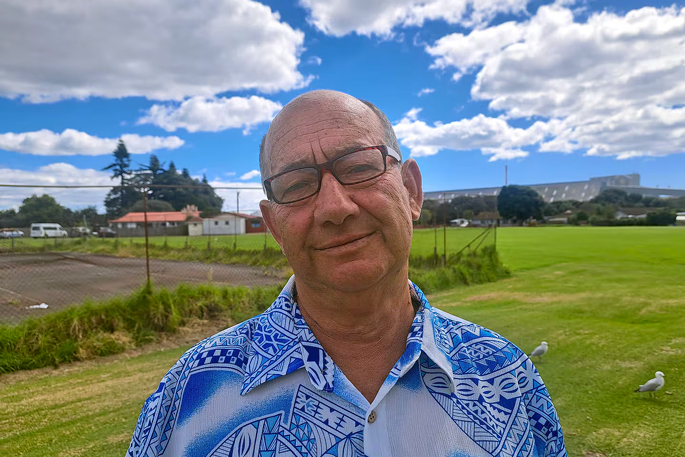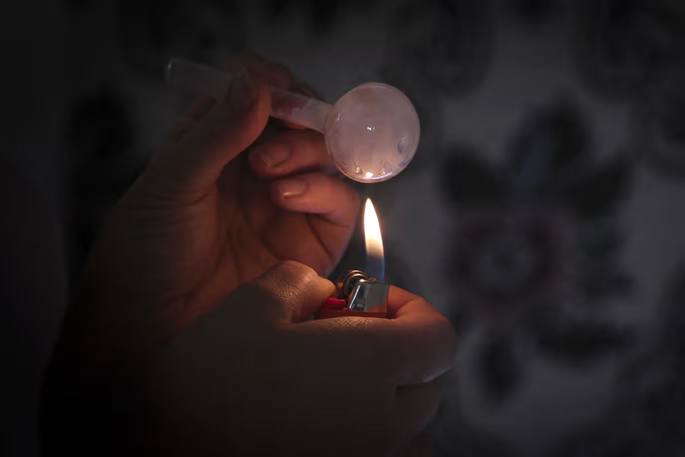“It breaks your heart. I think about him every day.”
That’s how a distraught father describes his feelings towards his adult son who is addicted to methamphetamine and living on the streets in Tauranga.
He understands it will take about $15,000 to get his son into a residential drug rehabilitation centre – and that many have long waiting lists.
The father, who did not want to be named to protect his family, says the impact of his son’s addiction is far-reaching.
He often threw the household into turmoil before his parents made the tough decision to kick him out. They gave him an ultimatum last year as his behaviour was affecting their other children and grandchild.
“It was not fair for them to deal with his emotional and mental suffering. His addiction destroyed the vibe in our home.
“He wasn’t the same boy.”
His son began meddling in P about four years ago and started to spiral. They noticed his personality change.
“He was always fun to be around and looked on the bright side of life. Now it is hard to imagine that comparison. He constantly lies and is withdrawn.
“He doesn’t work and when I saw him a few weeks ago he was high.”
The father rang some treatment centres a few years ago and learned it would cost about $15,000 for a three-month programme at a residential drug rehabilitation centre. He said that, even if the family sold something to raise money, the son could walk out of treatment at any time.
“Our son has been set up to fail and we tried endlessly to get help but there aren’t enough support systems.”
Evicting him has been traumatic. Not knowing if he's safe is distressing and watching him deteriorate is agonising.
“It’s not easy. I love my son.”
The family is backing a proposed new support group for families of addicts as well as continued calls for Tauranga to have a residential rehabilitation centre.
Methamphetamine whānau support group
Tommy Wilson, the former executive director and now community connector for Tē Tuinga Whānau Support Services Trust, says it's seeking funding to set up a new group for whānau affected by loved ones’ P addiction.
Called Te Puna Whakaora, meaning “the spring of healing”, he hopes it will “triage” whānau who deal with addiction consequences and work with other organisations to help them.
 Tommy Wilson is former executive director and now community connector for Tē Tuinga Whānau Support Services Trust. Photo / Carmen Hall.
Tommy Wilson is former executive director and now community connector for Tē Tuinga Whānau Support Services Trust. Photo / Carmen Hall.
Wilson says he has been previously told $1 million a week was being spent on methamphetamine in Tauranga, which is a “tragedy”.
He has been free of drugs and alcohol for more than 18 years and can relate to those battling addiction.
He says methamphetamine use needs to be addressed “while it is a health problem – before it becomes a criminal problem”.
Koro and nannies used like an ATM
Elders are still being “used like an ATM” by family members addicted to meth, Wilson says.
“Koros and nannies for all the right intentions have tried to rescue their mokopuna addicted to methamphetamine with their eftpos cards …
“Unfortunately, all that does is support their habit and delay the inevitable.”
Addiction is often swept under the carpet because of whakamā (shame) and Te Puna Whakaora will allow families to talk about their challenges and “begin the healing”.
He says there are other good initiatives in Tauranga catering to addicts but he's aware that some have waiting lists of up to three months and there's no local residential rehabilitation facility.
“We see this as the precursor to putting together a number of respite or residential rehabilitation retreats where family and those addicted can begin the process of sobriety.”
One person’s addiction affects 10 others
Mount Maunganui GP Dr Tony Farrell, who has a fellowship in addiction medicine, says one person’s addiction can affect up to 10 people around them.
“When people get addicted to a substance it is a health issue and it makes them do things that may be bad for their relationships. When you’ve lost that control it’s pretty hard to to stay on the straight and narrow.”
 Mount Maunganui GP Tony Farrell. Photo / File.
Mount Maunganui GP Tony Farrell. Photo / File.
Farrell supports the Te Puna Whakaora initiative and says Tauranga needs residential rehabilitation services.
“They will take an enormous amount of financial, staff and organisation and we certainly should have one. All health services are stretched everywhere.”
Meth still a massive problem
Jared Savage has spent 15 years writing about the drug trade as an investigative reporter for the NZ Herald and is the author of the Gangland and Gangster’s Paradise books.
In 2019, he was part of the team that made Fighting the Demon, a documentary exploring New Zealand’s methamphetamine crisis.
He told the Bay of Plenty Times that methamphetamine is still a massive problem in Tauranga and Rotorua, but especially in smaller rural Bay of Plenty towns – although cocaine is becoming more popular.
The price of methamphetamine means organised crime figures and gangs are making substantial profits from feeding the demand in these vulnerable communities, Savage says. This also led to escalating violence and shootings.
While commercial suppliers are still getting long prison sentences – and having their assets seized – Savage says police and judges are showing greater leniency to defendants who can show their offending is driven by addiction.
“Low-level drug possession is being treated as a health issue, not a crime issue, so fewer people are being sent to prison, which nearly everyone agrees doesn’t help with rehabilitation. But there’s often nowhere else for people to go.”
They will end up back in the same “toxic environment” and quickly go back to square one for their addiction.
“There are some very desperate people out there, so anything that can help in their recovery is to be supported.”
Workforce shortages hit addiction services
Health NZ co-director for addictions, Ian McKenzie, says it takes a health approach to addressing harm from alcohol and other drugs, including methamphetamine.
Nationally, there are more than 60 packages of care for social detox and residential treatment of methamphetamine harm, including a free residential rehabilitation programme in Rotorua.
He says Bay of Plenty Addictions Service don't have a waiting list.
“There is, however, significant demand for the service which, like the rest of the health sector, is currently experiencing workforce shortages.”
There are also non-governmental and iwi-led services catering to mild and moderate-to-severe addictions, says McKenzie.
Next month He Pou Oranga Whai Ora, a community mental health and addiction service launched in the Eastern Bay last year, is due to open a supported accommodation facility.
“Through partnerships with local stakeholders, He Pou Oranga Whaiora aims to deliver impactful interventions and foster holistic well-being,” it says.
“With a strong cultural emphasis, the service endeavours to empower individuals in overcoming addiction and achieving sustainable recovery.”
Health NZ and its Hauora a Toi Bay of Plenty were also asked about the lack of a residential drug rehabilitation facility in Tauranga.
Bay of Plenty meth use
According to data released this month, in the final quarter of 2023:
- 1.1kg of methamphetamine was used in the region each week;
- Per capita use was the third highest in New Zealand behind Waitato and Eastern police regions;
- Per-capital use was up on the average for the four prior quarters;
- Nationwide, the social harm cost of 13.6kg of meth use weekly was estimated at $15.1 million.
Drug addiction: Where to get help
- The Level: A straight-up guide for people who use drugs. thelevel.org.nz
- High Alert: A network of health professionals and social services highalert.org.nz/about-us
- Alcohol Drug Helpline: 0800 787 797 or text 8681
- Meth helpline: 0800 METH HELP (0800 6384 4357)



1 comment
Harsher Penalties
Posted on 04-04-2024 14:14 | By oceans
If the supply was reduced the prevalence of addiction would also be less. Suppliers of these dangerous drugs need to be caught and locked up for a long time. At the same time the proceeds need to be confiscated and used to pay for for the treatment of users.
Leave a Comment
You must be logged in to make a comment.